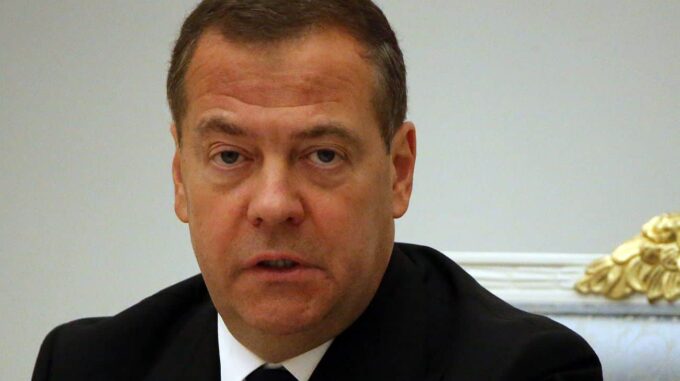The stars of the Russian political spectrum continue to demonstrate their uniqueness in terms of worldview and geopolitical forecasts

Recently, Dmitry Medvedev, the Deputy Chairman of Russia’s Security Council, returned to prophesying, causing significant resonance in international circles and among Ukrainian experts. When asked about Ukraine’s future in the context of the war and international support, the former Russian president made another, quite ambitious and at the same time unrealistic statement: that a "buffer zone" around Ukraine could occupy almost its entire territory. Medvedev posted a video on his social media microblog on X (formerly Twitter), depicting a map of Ukraine with an almost continuous zone marked as a "security buffer zone." Alongside it, he added the caption: “If military aid to the Bandera regime continues, this zone could look just like this.” The image sparked a wave of criticism, as it is unlikely to be based on any real geographical or military considerations, but with such words Medvedev once again picked up an old pro-Russian tactic of demonstrating unrealistic plans and threats. It should be noted that this is not the first time Dmitry Medvedev has announced plans or threats regarding Ukraine. In the past, he actively threatened to capture Kyiv and Odesa, repeatedly hinting at nuclear blackmail or armed force — Russian tanks in the heart of Europe, and a terrorist attack in Berlin as a potentially possible scenario. His recent statements included dismissive and highly ambiguous hints about the possibility of "changing the historical date" — the decisive May 9 date, which for Ukraine is a symbol of victory and sovereignty. As early as the end of May, on the 22nd, Russian President Vladimir Putin directly informed his officials about the decision to create a "buffer security zone" along the Ukrainian border. This formulation caused concern and active discussion among the population and security experts, since there are no practical grounds for justifying such a step; instead, it reflects only the political and propaganda struggles at play. Ukraine is playing a much more complex role in this game than naive strategic maps of Russian politicians can imagine. It is about the integrity of a sovereign state, its ability to defend itself against external aggression, and to maintain strategic autonomy in the face of current challenges. Medvedev’s provocative statements do not surprise Kyiv or the international community — they have repeatedly become a reminiscence of hopeless prophecies and warnings based on unsubstantiated strategies. Nonetheless, these statements once again demonstrate the Kremlin’s trust in pursuing an image of a powerful and unpredictable actor capable of drawing a new map of the region with maximum destabilizing consequences. For Ukraine, it is crucial to respond not to the chatter of political charlatans, but to concrete facts and true intentions. While Russia’s aspirations remain to be seen, the ongoing rhetoric continues to heighten geopolitical tensions and underscores the urgent need for coordinated oversight and the protection of national interests. Overall, Medvedev’s statement is another episode in a trilogy of dangerous Russian prophecies and provocations aimed at destabilizing the situation, reminding the world of imperial ambitions, and leading to the understanding that Ukraine’s security remains a key issue on the international agenda. Ukrainian diplomats, defenders, and civil activists call for vigilance and unity in defending their country, as global and regional challenges require responses that are more mature and responsible than words and maps with zones crafted in the fantasies of unrealistic propagandists.

